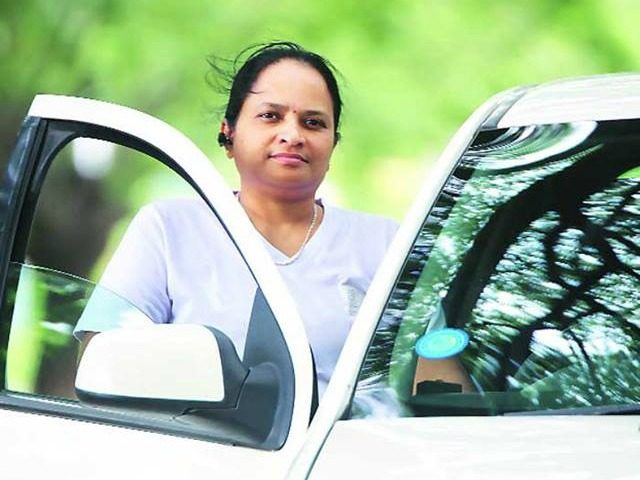India’s first licensed female taxi driver, and the first woman to drive an Uber in India, was found dead and hanging from the ceiling of her home on Monday.
According to the Hindustan Times, Bharati Veerath, 39, lived alone in her rented house in the city of Bangalore (Bengaluru). Her landlord, Shankar Singh, discovered her lifeless body after he noticed her car was abandoned, which led him to look for her at her third floor apartment. There, he saw her hanging from the ceiling as he peered inside her window.
Singh immediately called the police, who declared her dead upon arriving at the scene. The door of the residence was reportedly unlocked. However, due to insufficient evidence as of now, authorities are labeling the death a suicide. Bharati did not leave a suicide note behind.
Bharati became an Uber driver in 2013.
India Today reports that Bharati had recently told Singh that she wanted to move back to her hometown of Andhra Pradesh.
She also told him that “she was frustrated being single,” Singh told the Hindustan Times. “Otherwise, she had no financial problems and was paying a rent of Rs 6,500,” which is the equivalent of $96 U.S. dollars. He also told authorities that during the eight months she had been renting the residence from him, she did not have any visitors.
Uber issued a statement upon learning of Bharati’s passing: “We are shocked and saddened to learn of the tragic death of Bharathi Veerath. Bharathi was a positive person and one of our top women driver partners. She was an inspiration to many driver partners and riders. Our thoughts are with her family.”
India, like any other developing third world country, can be a dangerous place for single and working women. The Southeast Asian continent is highly patriarchal and is still in the midst of transitioning, and struggling, with the incorporation of modernity into their centuries-old hierarchical caste structure.
A host of other factors are attributed to this. An op-ed in the Hindustan Times writes, “The crumbling infrastructure of our cities also militates against women’s safety. Streets lit dimly or not at all; bad or non-existent means of public transport; an incompetent and corrupt police form – all contribute to the insecurity and vulnerability of women.”
Follow Adelle Nazarian on Twitter @AdelleNaz.

COMMENTS
Please let us know if you're having issues with commenting.